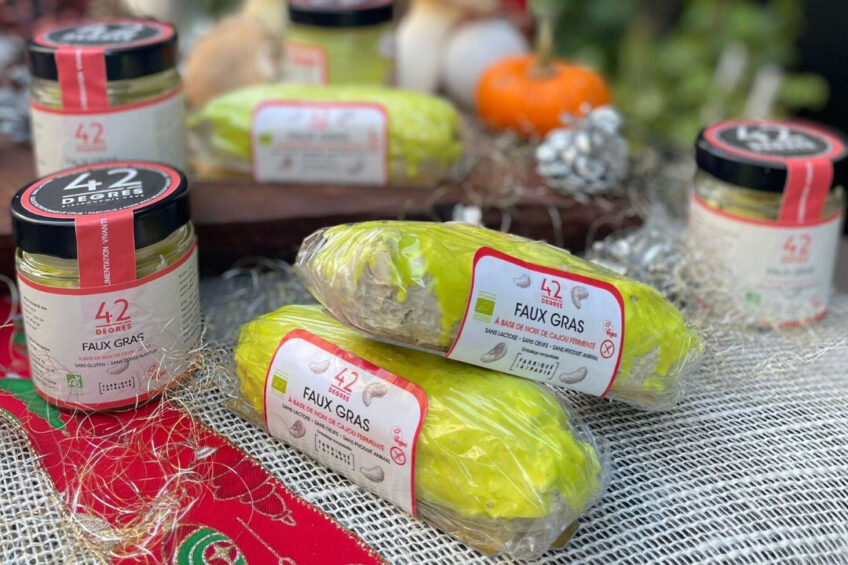Consumers in Paris choose between foie gras or ‘faux gras’

In France, vegan and animal-friendly alternatives to the popular foie gras are starting to appear on menus. This comes at a time when bird flu has caused severe damage to duck flocks and dented supplies of the traditional Christmas delicacy, report Reuters.
While foie gras, or ‘fatty liver’, remains a delicacy in French cuisine, the dish is often criticised and condemned by animal activists. Foie gras is made from the livers of geese or ducks fattened with grain, usually by force-feeding. While France is the largest producer and consumer of foie gras, the product is illegal to make in various countries due to welfare concerns.
‘Faux gras’
French chef, Fabien Borgel, who manages a vegan restaurant in Paris called ‘42 Degres’ created what he calls a ‘faux gras’ as a substitute to foie gras traditionally made from fattened duck and goose livers. Borgel’s dish contains cashew nuts, sunflower and coconut oil, and is said to look like the traditional foie gras but is creamier.
“You have people that have never tasted foie gras and will never taste it, and they want something festive for the year-end parties. Others want to change the way they eat and are heading towards alternatives,” Reuters reports Borgel saying.
Bird flu ravages duck farms
French foie gras output will fall for the 3rd consecutive year in 2022 after an outbreak of avian influenza led to millions of birds being culled in southwestern France earlier this year, as reported by Poultry World. Reuters reports producers group CIFOG noted that prices of foie gras would rise about 20% this year due to the drop in supply combined with soaring costs.
“It could make some people want to try something else,” Borgel said. “It could be an opportunity.”
42 Degres is putting its ‘faux gras’ on the menu from December through February.
Join 31,000+ subscribers
Subscribe to our newsletter to stay updated about all the need-to-know content in the poultry sector, three times a week. Beheer
Beheer











 WP Admin
WP Admin  Bewerk bericht
Bewerk bericht